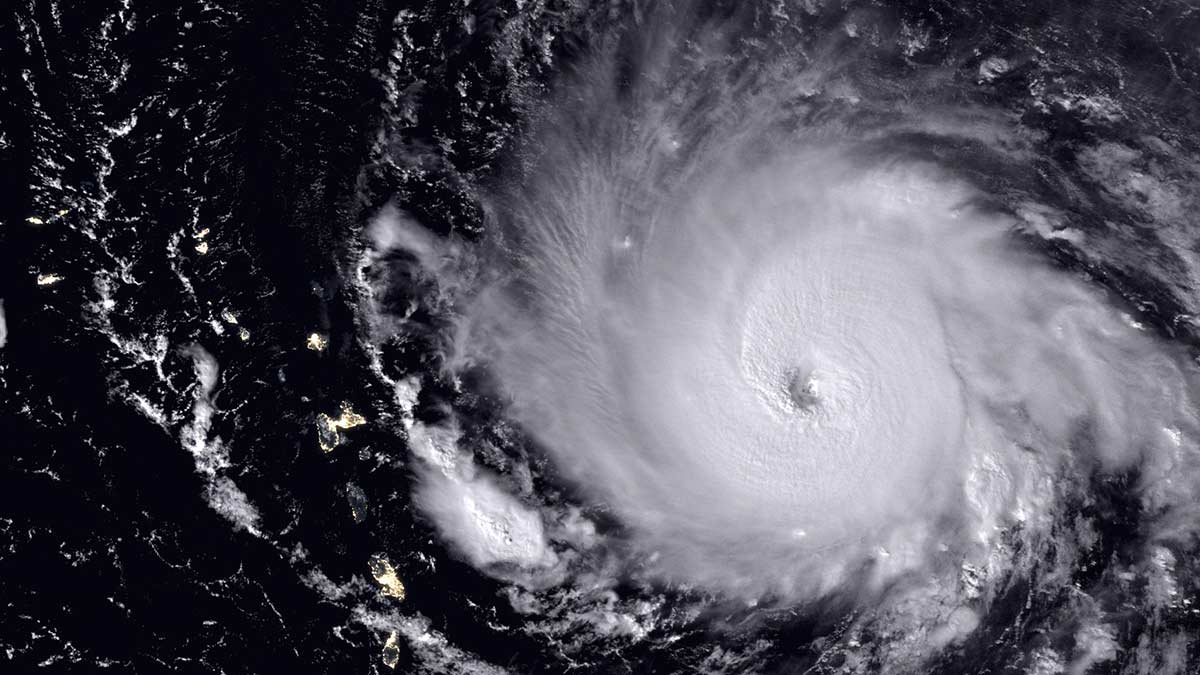This is the story of how social media was utilized to help save 300 head of mother cows and their calves during the August 17 – September 3 onslaught of Hurricane Harvey.
It’s just one story amidst many – deep in the heart of Louisiana; from one of CLN’s own: Holly Foster Berry.
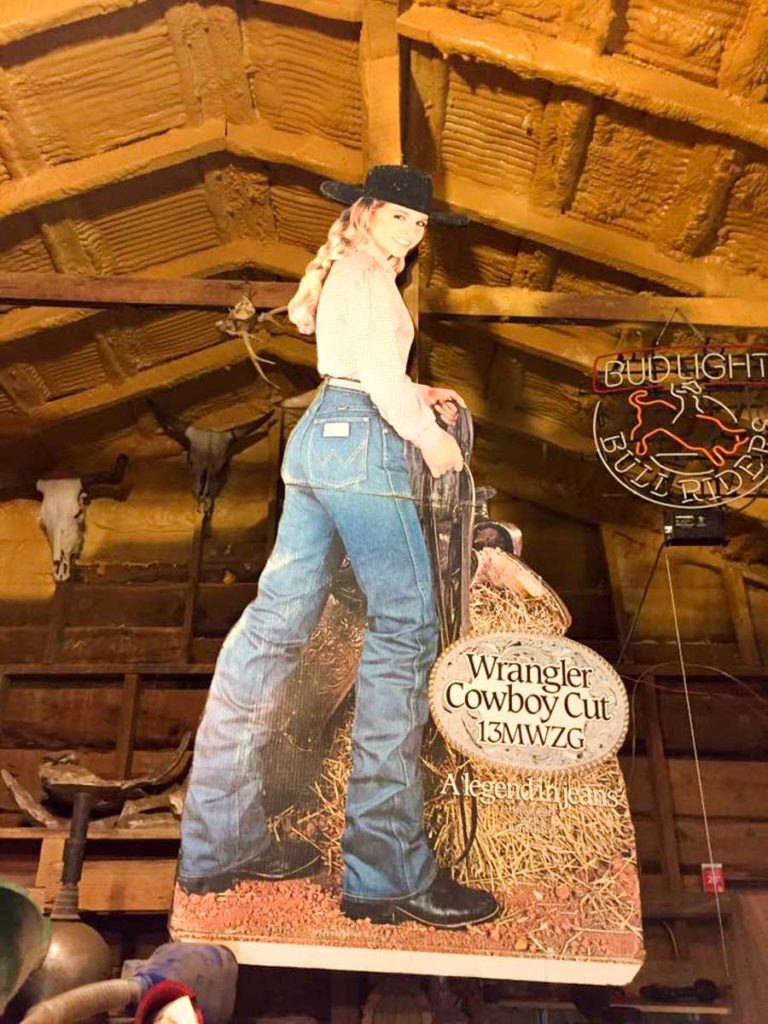
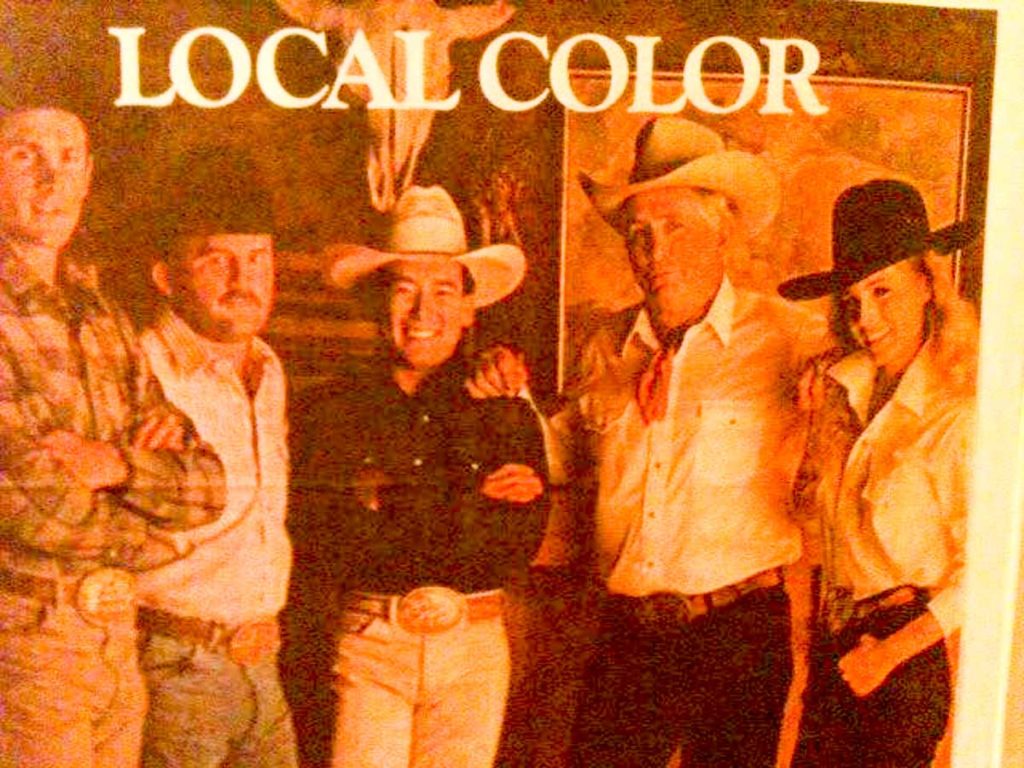
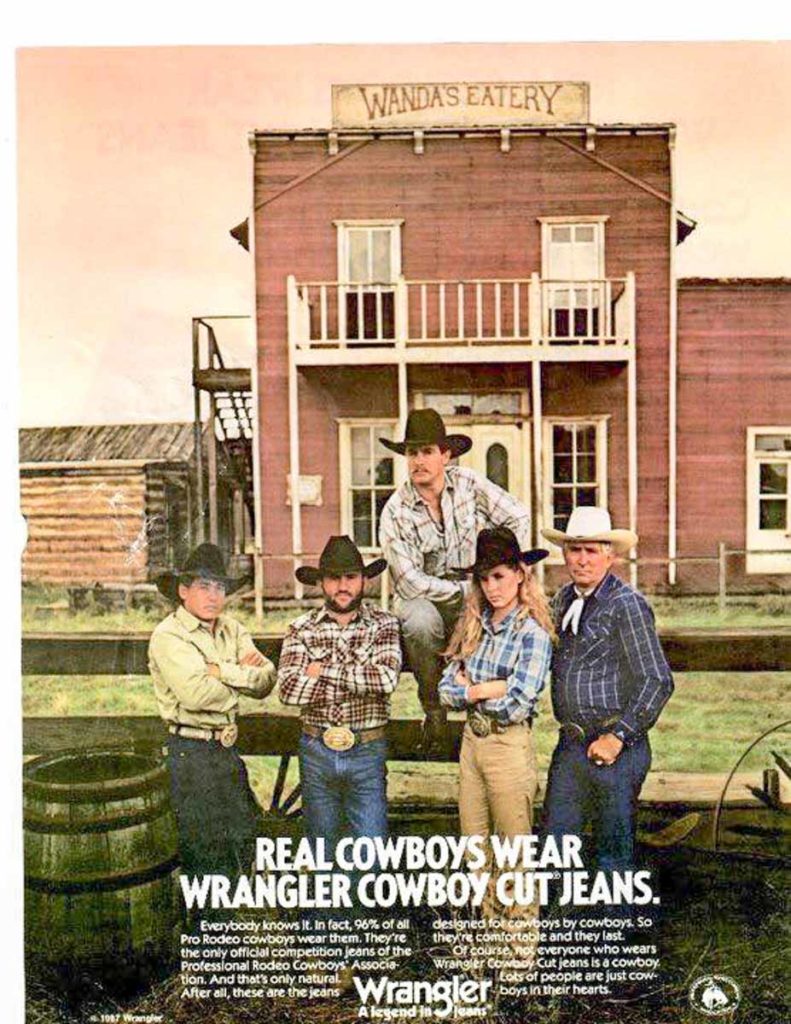
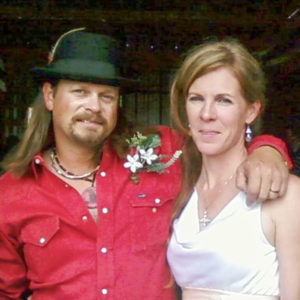
Holly Foster, now married to David Berry, has always been on my personal, “All-Time Favorite People” list. She is the 1987 CNFR (College National Finals Rodeo) Barrel Racing Champion; a past Wrangler Spokes Model; featured in the barrel racing documentary “Turn and Burn”; and all-around ranch hand. And don’t let her good looks fool ya. Known by many as the “real deal” cowgirl, Holly said to me during my telephone interview, “Manual labor would solve a lot of problems; and I have no problems with manual labor!”
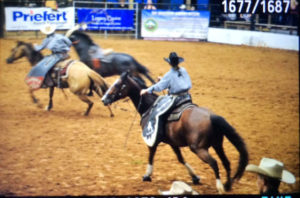
She and her husband raise and train bucking bulls, providing stock for schools, rodeos, and bull riding events. They are based out of Locust Grove, Oklahoma.
“She’s been the Wrangler National Model, and she has picked up Broncs when I needed help!”, stated David Berry.
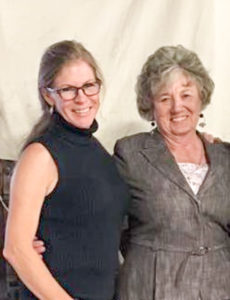
Holly’s family is a part of the fourth generation to ranch and raise beef cattle in the Lake Charles, Louisiana area; so hurricanes and storms are not new to them. They always find a way to survive and move on. “Every area has their own glitch or problems”, stated Holly; “Montana and the Northwest has wildfires; Oklahoma and Kansas have tornados; and we have flooding.”
During Hurricane Rita in 2005, the Army Core of Engineers utilized her parent’s main ranch as a place to park utility trucks and rescue vehicles. She said for days afterward, you could awake to find up to 300 head in their arena and corrals; as their place was left on high ground and considered to be a safe haven.
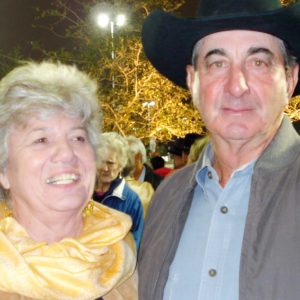
When they lost electricity during Rita, her mother, Dezere, took out all of the meat from the big deep freezers and cooked and cooked for volunteers and people in need in the surrounding area until it was all gone. Her favorite quote from her mother, Dezere (pronounced Desiree) Richard, is “What can I do for you, and what do ya wanna eat?”
Hurricane Harvey: A Recipe For Disaster
As Hurricane Harvey developed off the coastline and progressed on into land from August 17 through September 3, the Lake Charles, Louisiana area experienced a deluge of days and days of rain.
This time, the damage incurred wasn’t how the hurricane hit – it was the rain and how it came. Five days of over 19″ rain saturation, followed by 20″ of rain over the next 2-3 day period.
Since May of 1981, the local Parish made new roads on raised grounds; which served their area well – until Harvey.
The cattle, who have 4-500 acres of lower ground accompanied by 90 acres of higher hay ground, have always had these raised road areas to go to in times of flooding.
However, Parish politicians and management of these roads by people who have no first-hand knowledge of the area have led to the development of a new system of culverts and ditches by the raised roads that have not been properly cleaned since their installment. So when 20 inches fell over a period of 2-3 days on already saturated ground, these roads were put in peril.
Cows were calving in knee-deep mud, waiting for the world’s largest bathtub to drain. Holly felt helpless and trapped up in Locust Grove, Oklahoma – 10 hours away from her 77 year old mother and stepfather.
She could see disaster approaching, although the roads were still slightly above water. She was painfully aware of the culvert and drain ditch situation; and if the levee was to break, or water to rise over the levee, 300 mother cows and their calves would need to be moved. And she realized that Dezere and Lary would not ask for help.
So she turned to Facebook:
“Any of you who know them [Dezere and Lary] know that after nearly 8 decades of doing it themselves, they are not the best at asking for help. THANK YOU ALL FOR BEING THERE FOR THEM!!!! Your help and offers are amazing and we are all beyond grateful.” – Holly Foster Berry, August 29 Facebook Post.
The water rose above the levee – and friends and family jumped into action. “People started blowing up my Mom’s phone after my Facebook post”, exclaimed Holly. Portable pens were pulled in on trailers by tractors and set up.
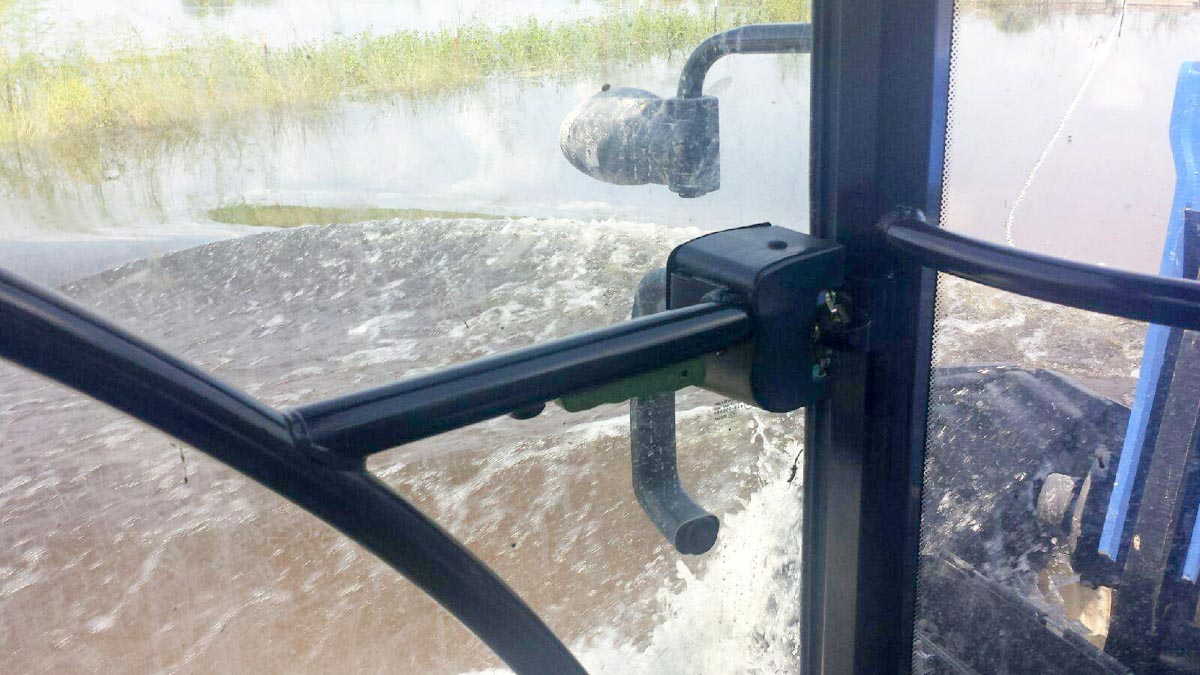
The first draft of cattle, 60-70 head of calves, were gathered and vaccinated. They were then loaded into trailers and pulled out by tractor to a point that was dry enough to then hook onto pickup trucks.
The later drafts of cows that were pulled out had to swim one to two miles to get to the point where they could be pulled out by trailer loads behind a tractor.
It was a slow and laborious process; one that included sharing the flood waters with gators, snakes, and snapping turtles.
Mosquitoes were so thick on the cattle, that color of the cows and calves could not be discerned. The cowboys who were working feverishly to gather them were also covered; their pant legs black with the disease-carrying pests.
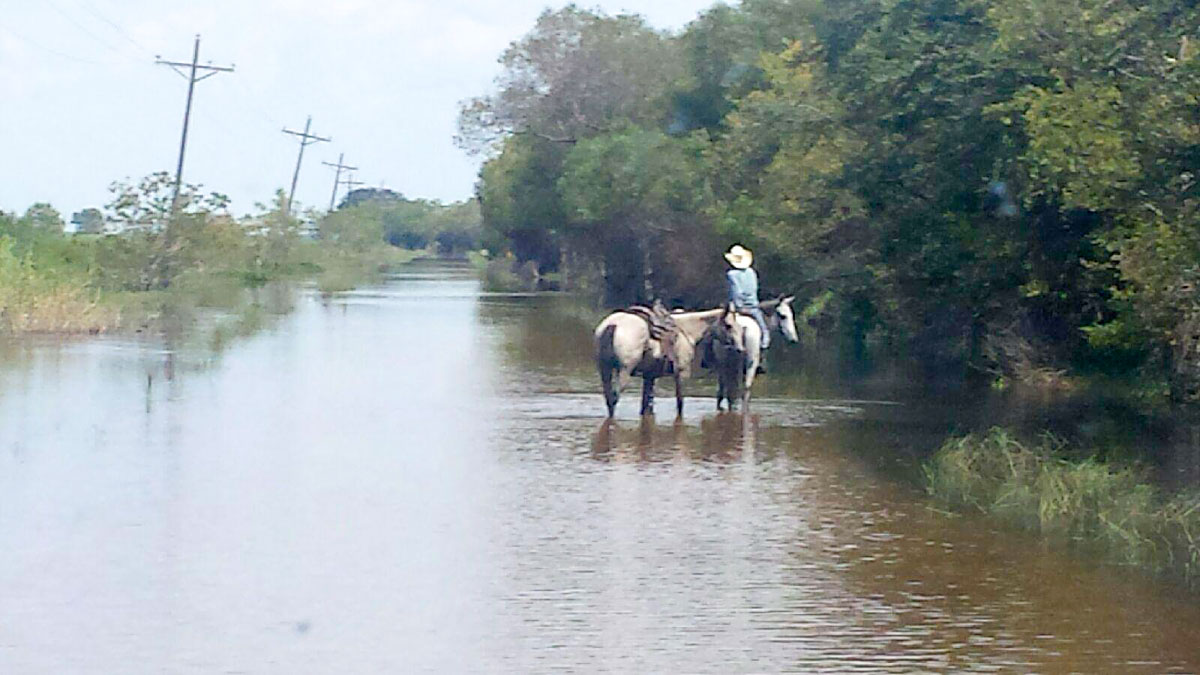
“THANK YOU to everyone who has offered their services to my mom and stepdad, Lary and Dezere Richard, in getting their cattle safe in the flooding. The cattle were doing OK until the water came over the top of the levee. The roads they were safe on, went under water then. The whole herd (about 300 head) followed the tractor about a 1/4 mile down flooded roads to part of one pasture that is still above water. The cattle will stay there tonight and they will figure out what to do in the morning with them, depending on the rain they get tonight (another 5-10″ on top of the previous 19″.) THEY MAY STILL NEED YOUR HELP TOMORROW.” – Holly Foster Berry, August 29 Facebook Post.
Then followed a frantic search, via Facebook, for pasture. At the last minute – literally – a family with adequate, dry pasture was found. “In our case, this [the pasture], was the best case scenario”, stated Holly. These people, new land owners, had decided they were going to be unable to harvest the hay from their acquisition themselves. When asked how long her folks could keep their cattle on the ground, they replied, “As long as you need it”. Holly figures that this will be the start of a long and rewarding business relationship between Dezere, Lary, and these wonderful land owners.
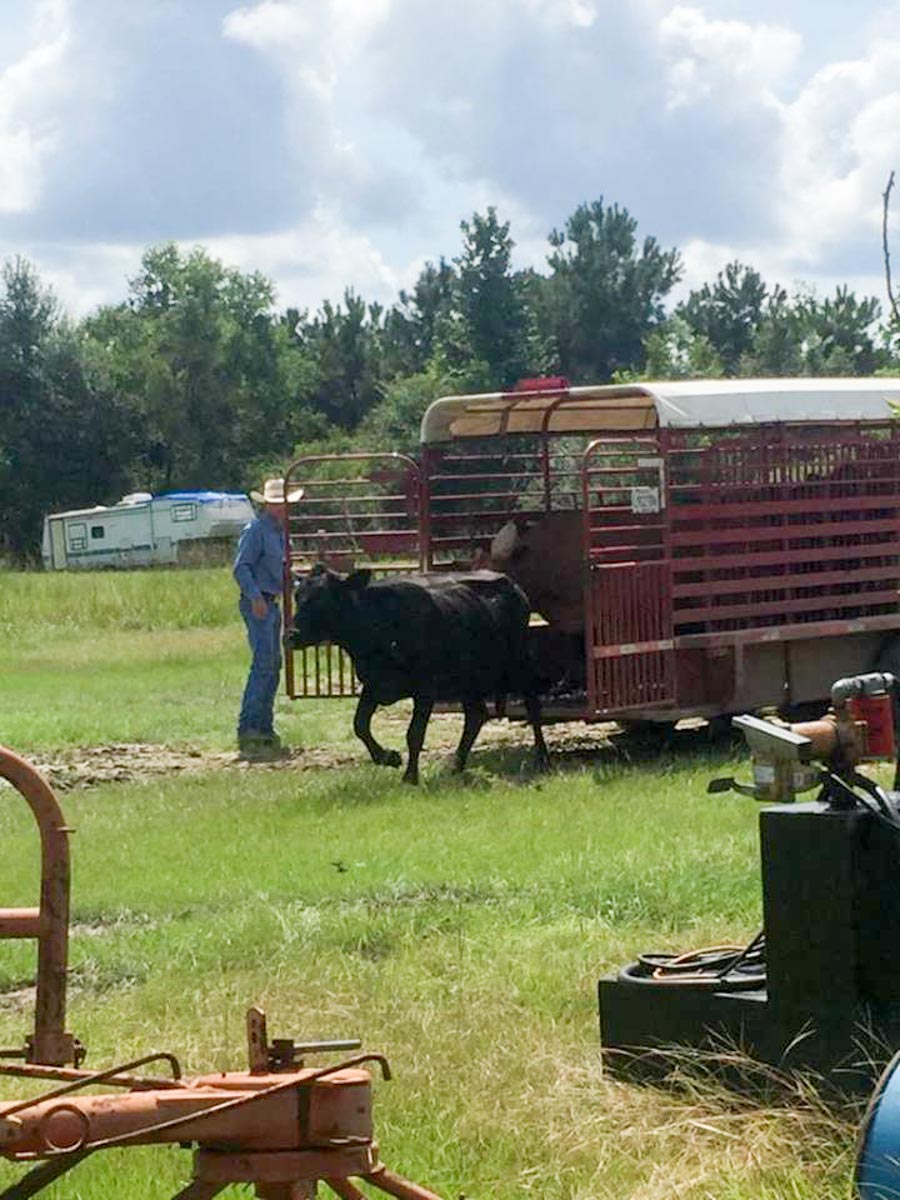
Accepting help was hard for her parents. Feeling out of control, even harder for Holly’s mother. Dezere is a person who was accustomed to being help to others, not helped by others. However, she settled some when she was able to cook for those gathering and hauling, and then she went out to operate one of the tractors.
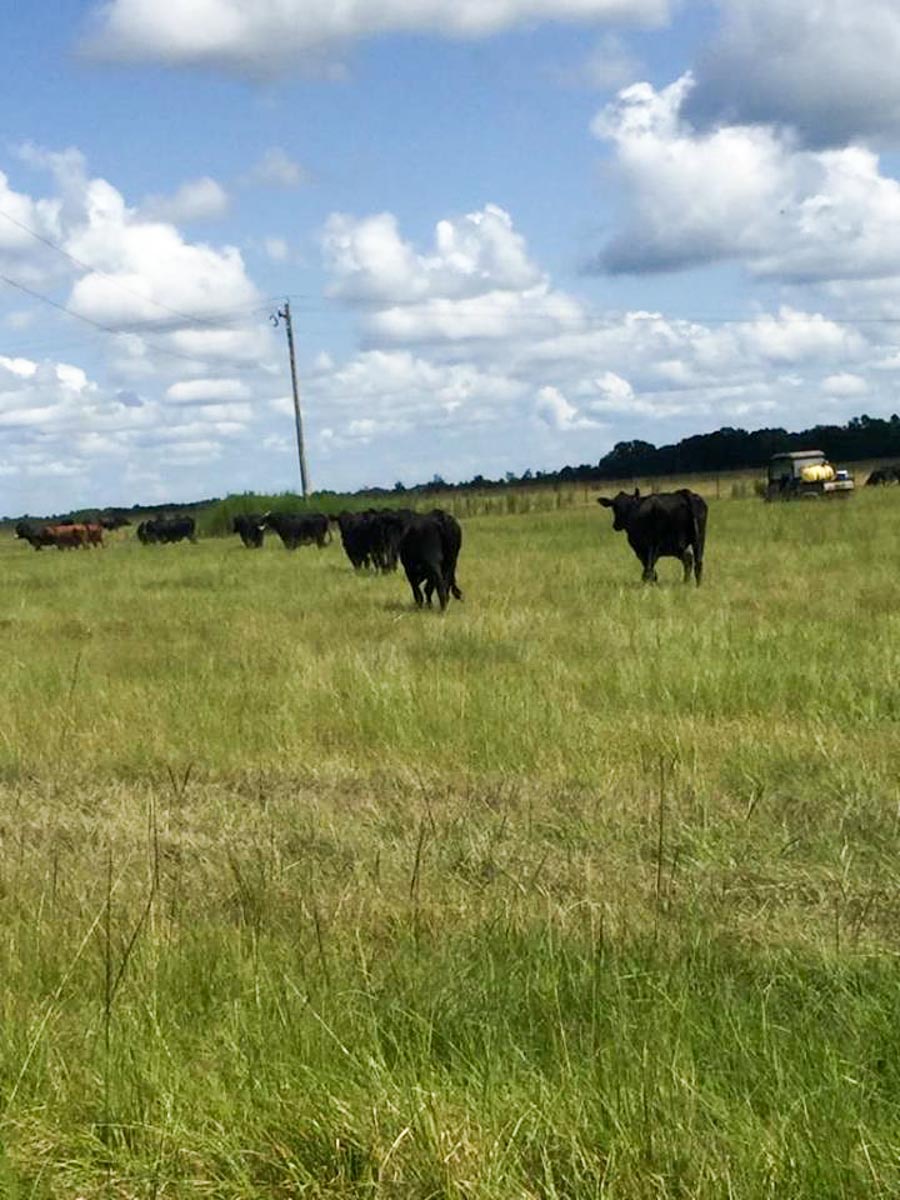
“She was on a tractor for several miles yesterday going down flooded roads to check on her cows. She has help, but I guess we have to be content knowing she will probably die doing what she loves one day. 77 and not slowing down.” – Holly Foster Berry, September 2 Facebook Post.
“Please take a moment to pray for everyone’s state of mind who is in the water and dealing with the aftermath of Hurricane Harvey – in cities and on ranches. Mental and physical exhaustion makes it easier to let the negatives grow to overwhelming. If you can’t directly help them today, help your neighbor, help the person in line in front of you, pray for the kid who just cut you off in traffic…If you don’t know how or why to pray, now is the best time to start. Your opinion doesn’t matter. Your prayers do. Thanks in advance.” – Holly Foster Berry, August 31 Facebook Post
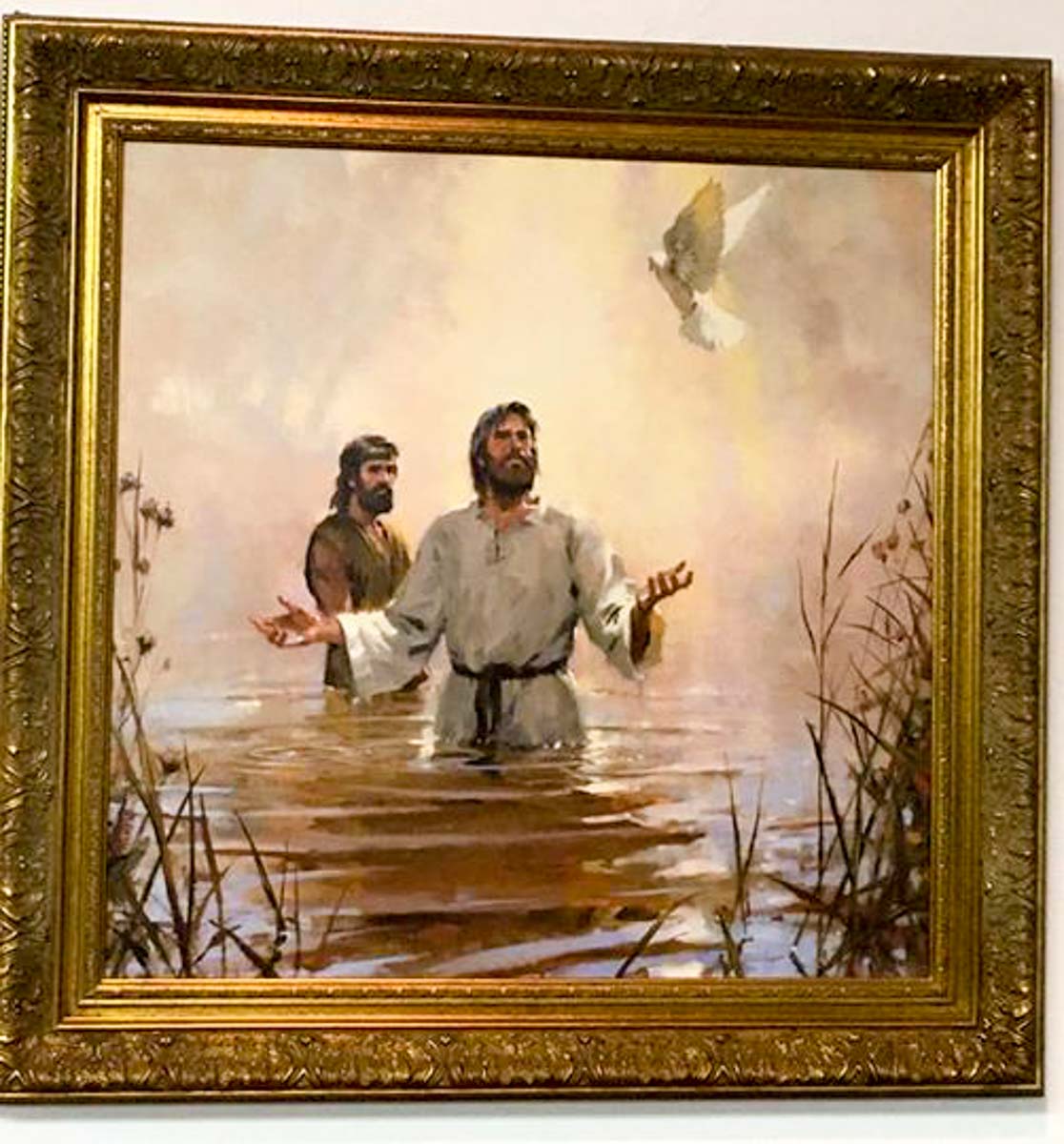
Holly’s family endured not only Harvey; but also a funeral for her step-sister’s husband within the same time period. So – they moved cattle one day, and attended the service on the next. However, they all share the attitude that “there are worse things to be in life than me”. After getting the cattle settled into their new pasture, her family started baling hay right away.
“My family, like many, had a tough time – but nobody had a heart attack, and all the cattle got moved. But there are many people who lost all. Established homes. Brick homes, barns. All gone.”, she sadly related to me. The flooding was exacerbated by “politicians and others who drive their Prius’ on concrete; not by people who have a first-hand knowledge of the land or animals.”, she explained – referring to the system of culverts and ditches that had not been properly maintained over a period of years.
Sad – but true. One simply cannot have an understanding of these issues from a seat in an office. The people who know and understand how to survive and maintain the land are those who live and breathe their surroundings – like Holly Foster Berry’s family – the fourth generation to work the land in Louisiana. Their lives and livelihood depends upon it.
